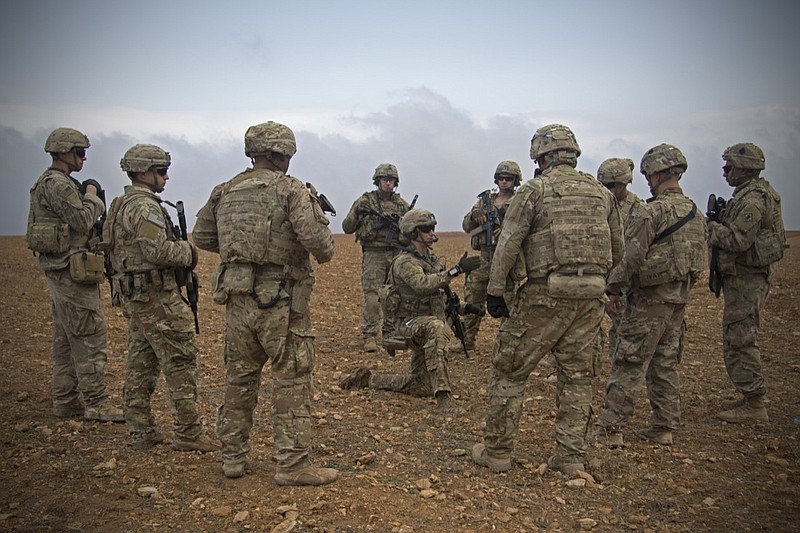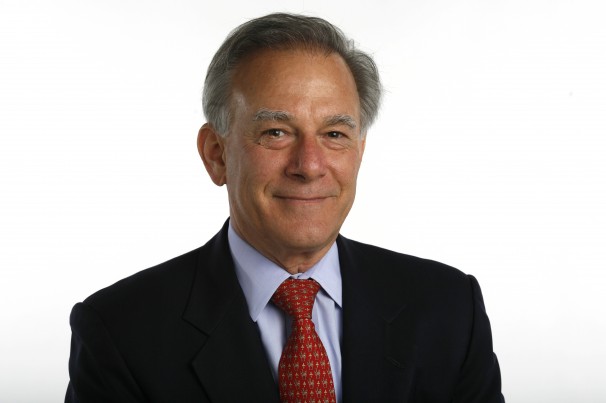WASHINGTON - The voice of Gen. Mazloum Abdi, the Kurdish commander of the Syrian Democratic Forces militia, is tight and controlled as he describes President's Trump's decision to withdraw U.S. troops from the country and leave America's allies to their fate.
"This was something we never expected," he said somberly in a telephone interview last Saturday night from his command headquarters in northeast Syria. "Honestly, until now, everything the Americans told us, they fulfilled, and the same thing for us. We were not ready for a decision like this."
Mazloum explained the dangers of a terrorist resurgence after Trump's sudden decision. Islamic State communications last week showed new hope they can restore their caliphate, which was on the way to destruction, he said.
What's agonizing is that Mazloum has been fighting alongside U.S. Special Operations Forces that represent the steadfastness of this country's military, and now he is experiencing a quite different American face. "... After this decision, what are people going to say about America? All the credibility and trust that was built, we have lost."
Mazloum is a tough, unsentimental commander, in his early 50s. When I've met him on past visits to Syria, he conveyed a quality of calm and deliberative judgment that's rare among militia leaders in that part of the world. The Kurdish fighters have an almost cult-like commitment to follow his orders and hold their ground, no matter what.
This willingness to fight and die under U.S. guidance has made the Kurdish-led forces unique allies. With American air support, SDF fighters destroyed the Islamic State's capital of Raqqa and all its major strongholds. The Kurds and their Syrian allies paid a severe price: They have suffered about 4,000 dead and 10,000 wounded since 2014. Over that same period, the United States lost only three soldiers in Syria, according to a U.S. military spokesperson.
Mazloum said Trump's decision was a shock because it came just a week after a personal visit from Ambassador James Jeffrey, the administration's special envoy to Syria. Jeffrey promised that U.S. forces wouldn't withdraw until they had achieved the "enduring defeat" of the Islamic State, the expulsion of Iranian troops from Syria and a political settlement that stabilized the country.
What astonished me most during our hour-long conversation was that Mazloum's forces continue waging their bloody campaign against the remnants of the Islamic State in eastern Syria, even though his fighters want to return home to Kurdish areas and protect their families. Mazloum said his forces had suffered at least 27 killed in action since Trump's abrupt decision, and many more wounded, as a revitalized terrorist adversary sent a wave of more than 10 suicide attacks against Mazloum's front lines.
"Right now, we are fighting for ourselves, for our existence," Mazloum said. "Because all our fighters know that if they don't defend themselves [the Islamic State] will come back and be stronger, murdering and beheading their families."
Mazloum believes Trump made a deal with Turkish President Recep Tayyip Erdogan, who has threatened to invade Kurdish areas and destroy what he claims is Kurdish terrorism. Mazloum said he advised his commanders that this agreement was made by U.S. politicians, not soldiers. "This is something immoral, leaving your ally in the battle alone," he said, something American soldiers would never do by choice.
I asked Mazloum what he would be doing the following morning. He said he planned to go to the front lines, to bolster the morale of his 10,000 troops still battling the Islamic State. In this holiday season, when we think about keeping faith, that's the kind of ally we are betraying.
Washington Post Writers Group

